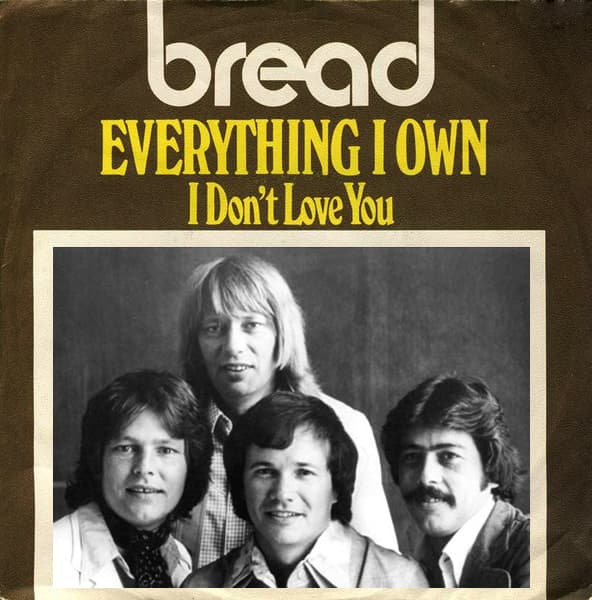
A Timeless Lament: The Enduring Power of Loss and Love
Ah, the early 1970s. A time of shifting tides, cultural upheaval, and a soundtrack that often provided solace amidst the storm. For many of us who lived through those years, certain melodies are etched into our very souls, evoking memories of youth, love, and sometimes, profound sorrow. And among those indelible tunes, few resonate with such a delicate yet powerful ache as Bread‘s “Everything I Own.”
Released in 1972 on their album Baby I’m-a Want You, “Everything I Own” quickly ascended the charts, reaching a respectable number 5 on the Billboard Hot 100. It wasn’t a raucous rock anthem or a soulful protest song; instead, it was a gentle ballad, almost whispered, yet it struck a chord that reverberated deeply with audiences. Its success was a testament to the song’s universal themes and David Gates‘s remarkable ability to craft melodies that felt both intimate and expansive.
The true poignancy of “Everything I Own” lies in its genesis. It wasn’t a typical love song written for a romantic partner, but rather a deeply personal tribute from David Gates to his father, who had recently passed away. This revelation, often overlooked by casual listeners, transforms the song from a simple lament of lost love into a profound meditation on grief, filial devotion, and the enduring legacy of those we cherish. When you hear the tender yearning in Gates’s voice, knowing the true inspiration, the lyrics take on an even more profound significance. Phrases like “You taught me how to live, and you taught me how to die” aren’t just poetic flourishes; they are heartfelt expressions of a son grappling with the ultimate absence, reflecting on the profound impact a parent has on their child’s life journey. The “everything I own” isn’t just material possessions; it encompasses the wisdom, the love, the very fabric of his being that his father helped to weave.
For those of us who have experienced the bittersweet pang of losing a parent, the song becomes a vessel for our own grief. It allows us to revisit those quiet moments of remembrance, the vivid snapshots of shared laughter, and the gentle ache of what will never be again. It’s a testament to the enduring bond between a child and a parent, a bond that transcends even death. The beauty of the song lies in its understated elegance; there’s no dramatic wailing or histrionic displays of sorrow. Instead, it offers a gentle, almost reverent, expression of grief, allowing listeners to project their own experiences onto its tender framework.
Bread, as a band, was often characterized by their soft rock sound, a genre that sometimes unfairly receives a dismissive shrug in the annals of music history. Yet, it was precisely this gentle approach that allowed songs like “Everything I Own” to truly shine. The understated instrumentation, the delicate harmonies, and Gates’s clear, emotive vocals all conspired to create an atmosphere of quiet reflection. It wasn’t about pushing boundaries or making a grand statement; it was about connecting with an audience on a deeply emotional level, offering a balm for the wounded heart.
Even today, decades later, “Everything I Own” retains its potent emotional power. It’s a song that transcends generations, speaking to anyone who has loved deeply and lost profoundly. It reminds us that grief, while personal, is also a universal human experience, and that music can be a powerful companion on that often-solitary journey. So, the next time you hear those familiar opening chords, take a moment to truly listen, to reflect, and perhaps, to remember those who shaped your own “everything.” It’s more than just a song; it’s a timeless elegy, a whisper of enduring love in the face of irreplaceable loss.